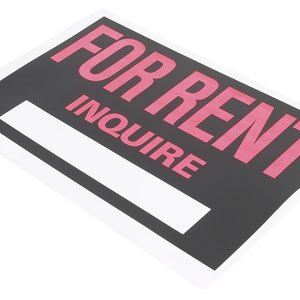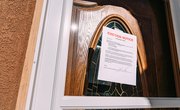
Many state and local governments require landlords to register their rental properties with a government agency before seeking tenants. In addition, some areas also require landlords to obtain a business license, a professional landlord license or both. If you want to rent out your property, check out the laws in your state and ordinances in your town to find out if you are required to comply: Some areas exempt landlords who only own one or two rental units from these laws.
Laws
A local real estate attorney who specializes in landlord and property management issues can advise you about the requirements in your area. These laws are in place for several reasons: Ensuring that landlords understand their rights and responsibilities under the law, enforcing occupancy limit codes and making it easy for authorities to trace the owner of a building in case problems arise with the building itself or its tenants.
Registration
Landlord registration laws vary by municipality, but often require landlords to fill out an application that includes information about the ownership of the building, the name and contact information of the landlord, property manager and custodian. The registration application may also ask the landlord to verify that he is aware of local laws on renting to sex offenders. Often a fee is charged to register a rental property and some areas require landlords to renew a property's registration every few years.
Licensing
Some communities may require landlords to obtain one or more licenses before renting properties to tenants. In some cases, a landlord may have to obtain a commercial business license as well as a specific license for landlords. As with landlord registration, requirements for landlord licensing vary by jurisdiction, but may include paying a fee and taking an approved course on landlord-tenant law and responsible property ownership.
Exceptions
Some jurisdictions treat landlords who only rent out their own home, or who own just a handful of properties, differently from landlords who own multiple buildings. In Logan, Utah, for example, landlords who rent out their own home while they are in the hospital, a nursing home, away for three years, or less, don't have to register. In New Jersey, owner-occupied buildings with only one or two units don't have to be registered at all. Non-owner occupied buildings of one or two units must be registered with a local government office. Owners of multi-unit properties must register with the State of New Jersey.
Related Licenses
If you hire someone to manage your property or properties for you, research state or local laws that govern third-party property managers: While your state or town may not require landlords to register or obtain a license, some do require non-owner property managers to have a real estate or property management license.
Warning
Failure to register rental property or to obtain a landlord license can be an expensive mistake. Some communities mandate significant fines for landlords who don't comply with the law. Providing inaccurate information on an application and refusing to correct it may be a criminal offense in some jurisdictions.
References
- City of Philadelphia: Licenses and Inspections
- Michigan Business One Stop: Landlord
- Township of West Windsor: Landlord Registration
- City of Lambertville, New Jersey: Landlord Registration
- Vernon Township: Landlord Registration
- State of New Jersey: Department of Community Affairs: Bureau of Housing Inspection
Writer Bio
Lainie Petersen writes about business, real estate and personal finance, drawing on 25 years experience in publishing and education. Petersen's work appears in Money Crashers, Selling to the Masses, and in Walmart News Now, a blog for Walmart suppliers. She holds a master's degree in library science from Dominican University.

